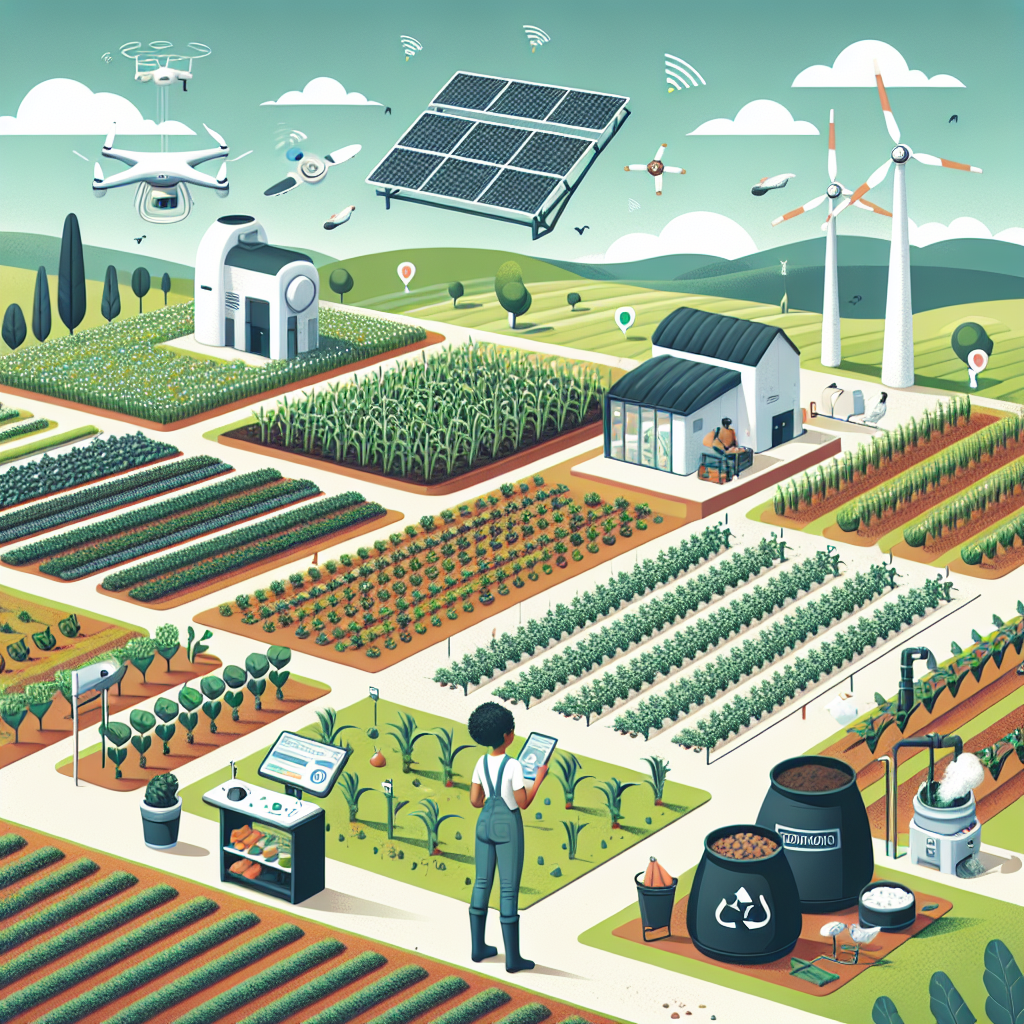Your cart is currently empty!
In the face of climate change, dwindling natural resources, and the growing demand for food, the agricultural industry is under increased pressure to adopt sustainable practices. Sustainable farming focuses on meeting the needs of the present without compromising the ability of future generations to meet their own needs. By integrating environmentally, socially, and economically responsible practices, farmers can ensure long-term viability and success. This article explores how sustainable practices drive farming success in various ways.
Sustainable practices in agriculture are not merely about preserving the environment; they represent a holistic approach to farming that ensures economic viability and social responsibility, paving the way for a thriving future.
The Importance of Sustainability in Agriculture
Sustainable practices are essential for several reasons:
- Environmental Preservation: Sustainable farming helps conserve natural resources, reduce pollution, and protect biodiversity, which are crucial for maintaining healthy ecosystems.
- Economic Viability: By reducing input costs, improving efficiency, and enhancing product quality, sustainable practices can increase profitability for farmers.
- Social Responsibility: Sustainable agriculture promotes fair labor practices, supports local communities, and ensures food security, contributing to overall societal well-being.


Key Sustainable Practices Driving Success
1. Crop Rotation and Diversity
Implementing crop rotation and planting diverse crops can significantly enhance soil health and yield.
- Soil Fertility: Different crops contribute varying nutrients to the soil and can reduce the buildup of pests and diseases. For example, legumes fix nitrogen in the soil, improving fertility for subsequent crops.
- Pest Management: Diverse cropping systems disrupt pest life cycles, reducing the reliance on chemical pesticides and promoting integrated pest management.
2. Organic Farming
Organic farming practices prioritize natural inputs and ecological balance, leading to healthier soils and environments.
- Soil Health: By avoiding synthetic fertilizers and pesticides, organic farming enhances soil structure and microbiological activity, resulting in better nutrient availability.
- Market Demand: With an increasing consumer preference for organic produce, farmers adopting organic practices can tap into lucrative markets, enhancing profitability.
3. Water Conservation Techniques
Efficient water management is critical for sustainable agriculture, particularly in regions facing water scarcity.
- Drip Irrigation: This precision irrigation method delivers water directly to the plant roots, minimizing evaporation and runoff, thereby conserving water resources.
- Rainwater Harvesting: Collecting and storing rainwater can supplement irrigation needs, reducing dependence on groundwater and improving resilience to drought.
4. Agroforestry
Integrating trees into farming systems enhances both productivity and environmental benefits.
- Biodiversity Enhancement: Trees provide habitats for various species, promoting ecological balance and increasing local biodiversity.
- Soil Erosion Control: Tree roots stabilize soil, preventing erosion and promoting soil health, which is vital for sustainable crop production.
5. Reduction of Chemical Inputs
Minimizing pesticide and herbicide use encourages a healthier ecosystem.
- Integrated Pest Management (IPM): IPM strategies use biological control, cultural practices, and resistant crop varieties to manage pests with minimal chemical intervention.
- Natural Fertilizers: Utilizing compost, manure, and other organic materials can reduce the reliance on synthetic fertilizers, promoting soil health and reducing pollution.
6. Precision Agriculture
Technology plays a crucial role in implementing sustainable practices effectively.
- Data-Driven Decisions: Precision agriculture uses sensors, drones, and data analytics to optimize inputs, manage resources efficiently, and improve crop yields.
- Resource Optimization: By delivering the right amount of water and nutrients at the right time, precision agriculture reduces waste and enhances sustainability.
Benefits of Sustainable Practices
The adoption of sustainable practices leads to numerous advantages:
- Enhanced Resilience: Sustainable farming systems are better equipped to withstand climate variability and other environmental challenges, ensuring consistent productivity.
- Improved Soil Health: Practices that focus on soil conservation contribute to long-term fertility and productivity, reducing the need for chemical inputs.
- Higher Market Value: Sustainable products often command premium prices, providing farmers with increased income opportunities and consumer loyalty.
- Community Well-Being: Sustainable agriculture supports local economies and communities, promoting social responsibility and equity in the food system.
Conclusion
Sustainable practices are not just a trend; they are essential for the long-term success and resilience of the farming industry. By embracing methods that prioritize environmental health, economic viability, and social responsibility, farmers can achieve a balance that drives productivity and ensures food security for future generations. As the agricultural landscape continues to evolve, sustainable practices will play a pivotal role in shaping a resilient and prosperous future for farming.


Leave a Reply